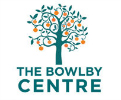- HOME
- HANDBOOKS
- TRAINING
- PSYCHOTHERAPY
- FIND A THERAPIST
- COURSES & EVENTS
- PUBLICATIONS
- Bowlby Centre Videos
- Attachment Journal
- Monographs & Books
- Trauma and Loss – Key Texts from the John Bowlby Archive
- From Broken Attachments To Earned Security – The Role of Empathy in Therapeutic Change
- Talking Bodies – How do we Integrate Working with the Body in Psychotherapy from an Attachment and Relational Perspective?
- Shattered States – Disorganised Attachment and its Repair
- Trauma and Attachment
- Ritual Abuse And Mind Control – The Manipulation of Attachment Needs
- Telling Stories? – Attachment Based Approaches To The Treatment of Psychosis
- Addictions From An Attachment Perspective – Do Broken Bonds and Early Trauma Lead to Addictive Behaviours?
- Touch – Attachment and the Body
- Sexuality and Attachment in Clinical Practice
- Unmasking Race, Culture And Attachment In The Psychoanalytic Space
- ABOUT
- CONTACT
